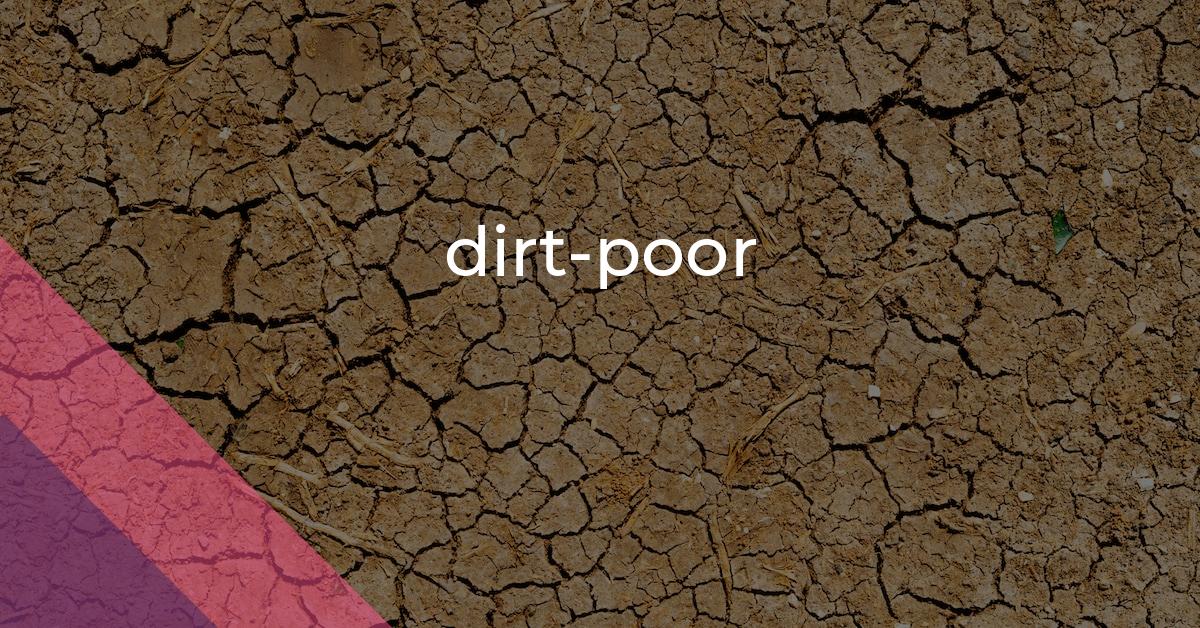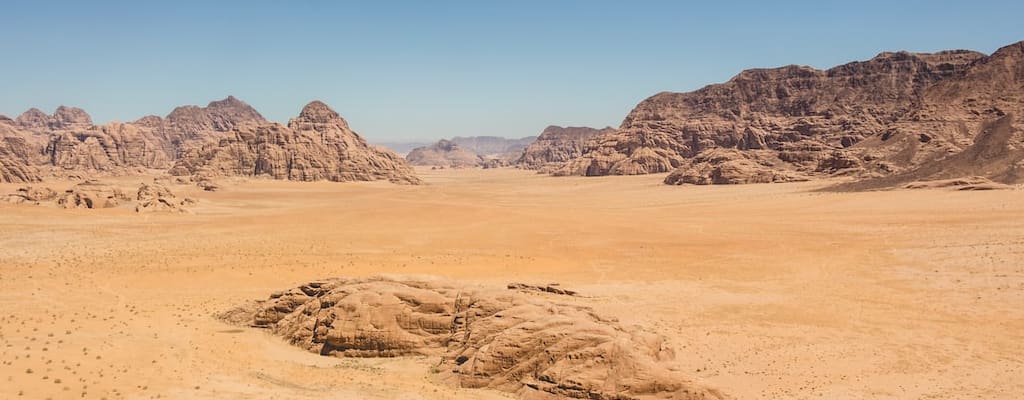dirt-poor: Idiom Meaning and Origin
What does ‘dirt-poor’ mean?
The idiom "dirt-poor" refers to someone who is extremely poor or impoverished. The term "dirt" implies a level of destitution that is lower than "poor", emphasizing the dire financial situation of the person. The idiom is often used to convey an extreme or severe level of poverty.

Idiom Explorer
An idiom that means someone is very poor and has no money.
The idiom "do the dirty on" means to betray or deceive someone, often in a sneaky or underhanded way.
The idiom "dish the dirt" means to share or reveal gossip or negative information about someone. It is often used when someone is talking about another person's personal or private matters in a negative or judgmental way.
The idiom "dirty work" refers to unpleasant or morally questionable tasks that someone must do, often on behalf of another person, which they may not want to be associated with or take responsibility for.
The idiom "dirty word" refers to a word or phrase that is offensive, vulgar, or taboo in nature. It is generally used to describe language that is considered inappropriate or socially unacceptable in certain contexts.
The idiom "dirt file" refers to a collection of facts or information, often negative, that is gathered about a person or organization and used for blackmail or manipulation purposes.
The idiom "dime's worth" implies a small or insignificant value, often used to express the lack of significance or impact of something.
Exploring Extreme Destitution
The idiom "dirt-poor" is commonly used in the United States to describe extreme poverty or a state of utter destitution. It suggests a level of poverty so severe that one has nothing but dirt as their possession. This expression is typically used in informal contexts and is not commonly used in formal or academic writing. The origin of the idiom can be traced back to the late 19th century when dirt was often associated with a lack of resources or material possessions. In many rural areas, dirt was the predominant surface, and people living in poverty had little to no possessions, often only what they could find in the dirt. The idiom became a way to emphasize the extreme economic hardship experienced by individuals or communities.
The term "dirt-poor" has become deeply ingrained in the American vernacular and is frequently used in various forms of media, including literature, film, and music. It effectively conveys the severity of economic struggle and the absence of tangible resources. This idiom is similar in meaning to expressions such as "broke" or "penniless," which also convey the idea of extreme poverty. However, "dirt-poor" carries a slightly more intense connotation, evoking an image of poverty so extreme that the only possession one has is dirt.
When we hear the phrase "filthy rich" in contrast to "dirt-poor," it creates a stark juxtaposition. While "dirt-poor" signifies extreme poverty, "filthy rich" describes a person who is extremely wealthy, often to an excessive or extravagant degree. These two idioms highlight the vast economic disparities that exist in society. While some individuals have nothing but dirt, others have so much wealth that it can be considered "filthy."
Another related idiom is "two pennies to rub together." This expression is used to describe someone who is extremely poor and has no money. The image of rubbing pennies together implies desperation and a lack of resources. When compared to "dirt-poor," this idiom emphasizes the minimal level of poverty, contrasting with the complete absence of possessions and economic hardships conveyed by "dirt-poor."
The term "dirt file" brings a different perspective to the idiom. It refers to a collection of compromising or damaging information on someone, often used for blackmail or manipulation. While "dirt-poor" focuses on poverty and lack of possessions, "dirt file" emphasizes the possession of information that can be used to exploit or harm someone. These idioms present contrasting ideas and highlight different aspects of the human experience.
"dirty money" is another idiom related to "dirt-poor." It refers to money that has been obtained through illegal or unethical means. While "dirt-poor" represents extreme poverty, "dirty money" signifies wealth that is tainted and morally questionable. Both idioms provide vivid imagery and evoke strong emotional reactions, but from opposite ends of the economic spectrum.
The final related idiom is "dirty word." This term is used to describe a word or phrase that is considered vulgar, offensive, or taboo in society. While "dirt-poor" focuses on material possessions and poverty, "dirty word" shifts the focus to language and societal norms. This idiom conveys the idea that certain words can be seen as impure or morally objectionable. While "dirt-poor" describes a state of destitution, "dirty word" explores the boundaries of acceptable language and communication in society.
The idiom "dirt-poor" is deeply rooted in American culture and language. It is commonly used to describe extreme poverty and a complete lack of material possessions. The phrase originated in the late 19th century and has since become a powerful expression to convey the severity of economic hardship. The related idioms "filthy rich," "two pennies to rub together," "dirt file," "dirty money," and "dirty word" provide additional depth and context to the concept of poverty and the complexities of language and societal norms.
Example usage
Examples of how the idiom *dirt-poor* can be used in a sentence:
- He grew up in a rural area and his family was dirt-poor, struggling to make ends meet.
- After losing his job, John found himself dirt-poor and unable to afford basic necessities.
- They inherited a small farm but were dirt-poor and had to work hard to turn it into a profitable business.
More "Poverty" idioms



